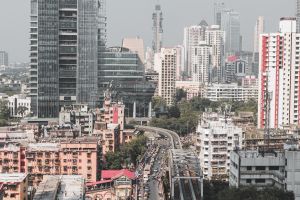India is forecast to experience the largest increase in urban population of any country in the world. India's cities could have another 404 million mouths to feed by the year 2050.
Executive Summary
- Cities will generate 70 percent of India’s new jobs and gross domestic product (GDP). India's $360 billion food market will grow significantly as urban employment and rising incomes support increased consumption and access to quality food options.
- Against this backdrop of growth and opportunity, much of urban India is considered highly or moderately food insecure, reflecting differences in nutritional status among urban residents and communities.
- The majority of urban residents do not achieve the daily intake of nutrition recommended by India’s National Institute of Nutrition. The poorest urban residents consume on average 55 percent less than the wealthiest urban residents.
- For the most vulnerable urban residents, a variety of public health interventions and social safety nets are required. But growing demand in urban food markets also necessitates the significant transformation of India’s food supply chain.
- Today, India’s food system is largely unorganized and highly fragmented, inhibiting large-scale procurement, distribution, and retail sales.
- Substantial public investments are needed to expand and increase the quality of storage, handling, and transportation infrastructure.
- Value-added processing offers opportunities to mainstream micronutrients into the diet by fortifying widely consumed staples with vitamins, minerals, and iron to help address deficiencies.
- The government of India must continue improving the regulatory environment as a prerequisite to private-sector investments in vertically integrated sourcing, modern logistics services, large-scale food processing, and retail efficiencies— four critical routes to improving urban nutrition and food security in India.
About the Author
Andrea Durkin
Former Nonresident Senior Fellow, Global Food and Agriculture

Andrea Durkin formerly served as nonresident senior fellow of global food and agriculture at the Chicago Council on Global Affairs, with expertise in the global economy. She has returned to public service with the Executive Office of the President.

